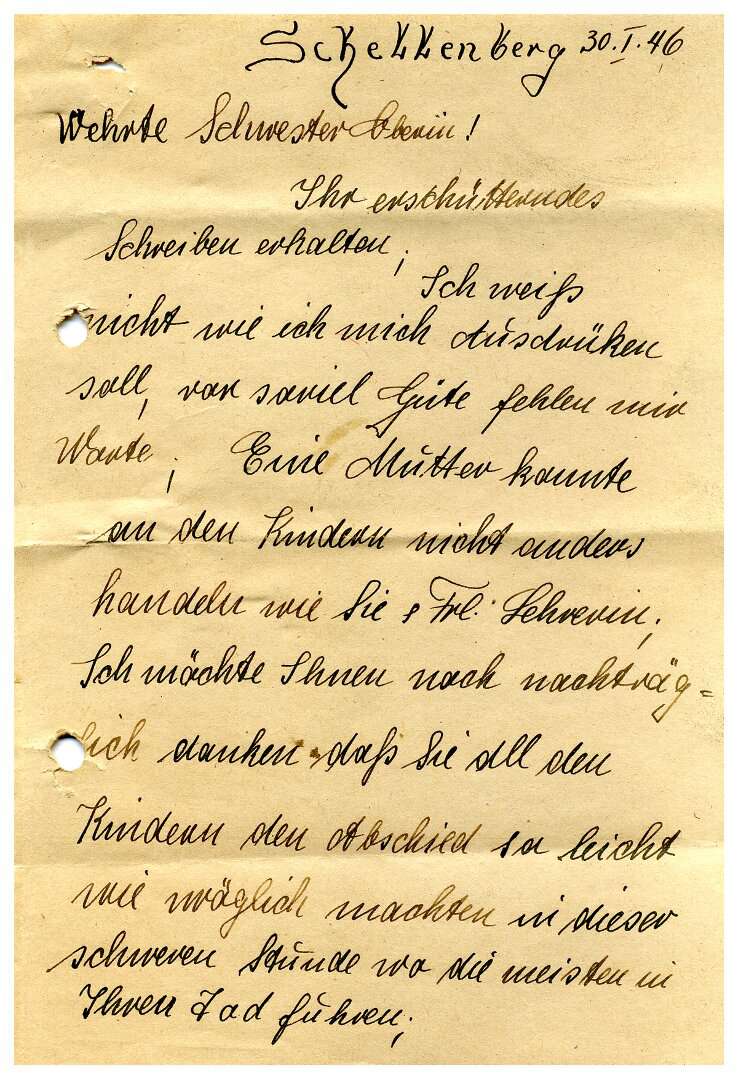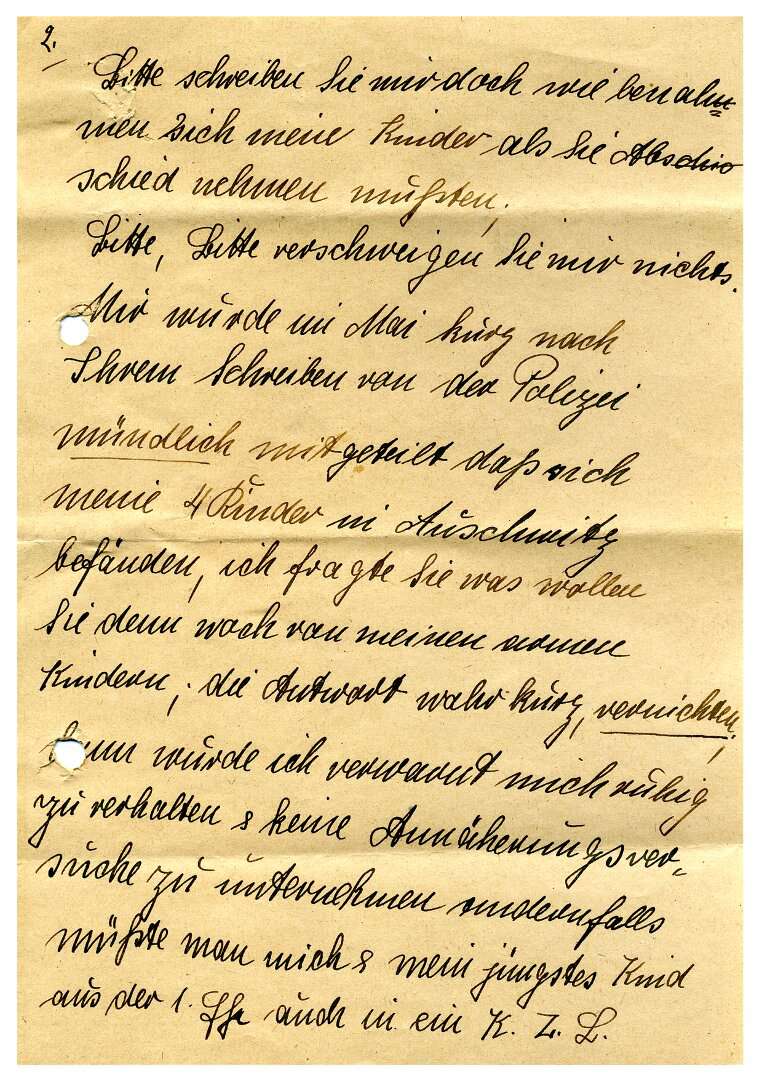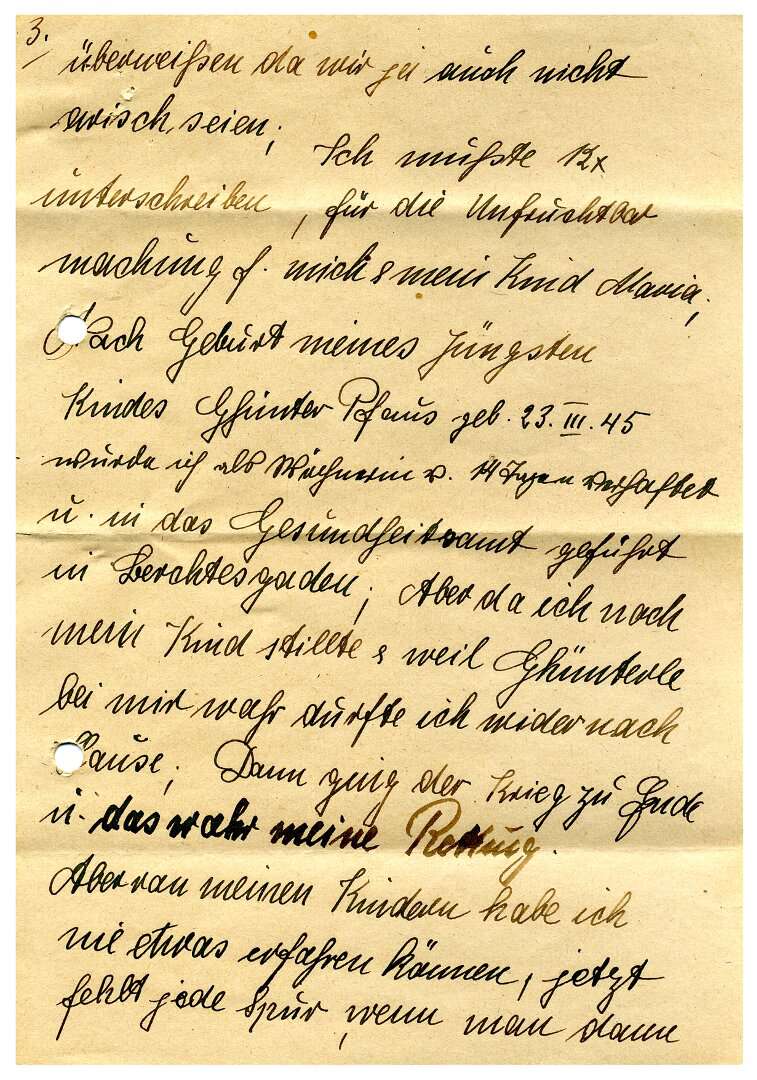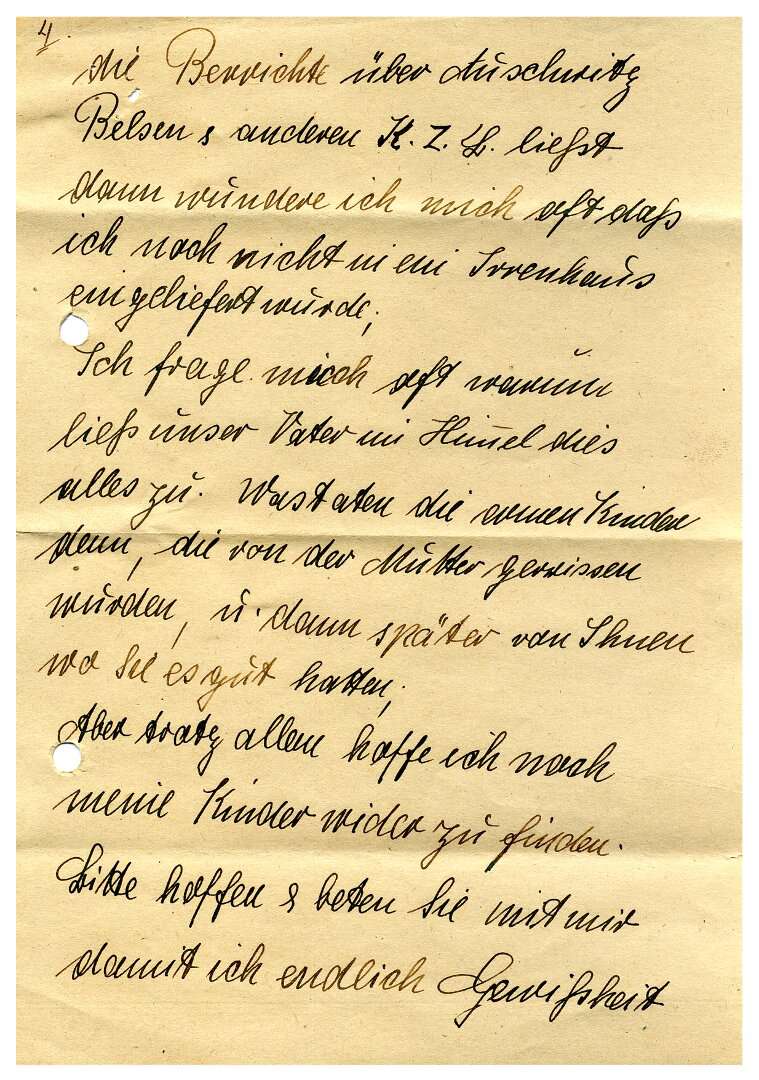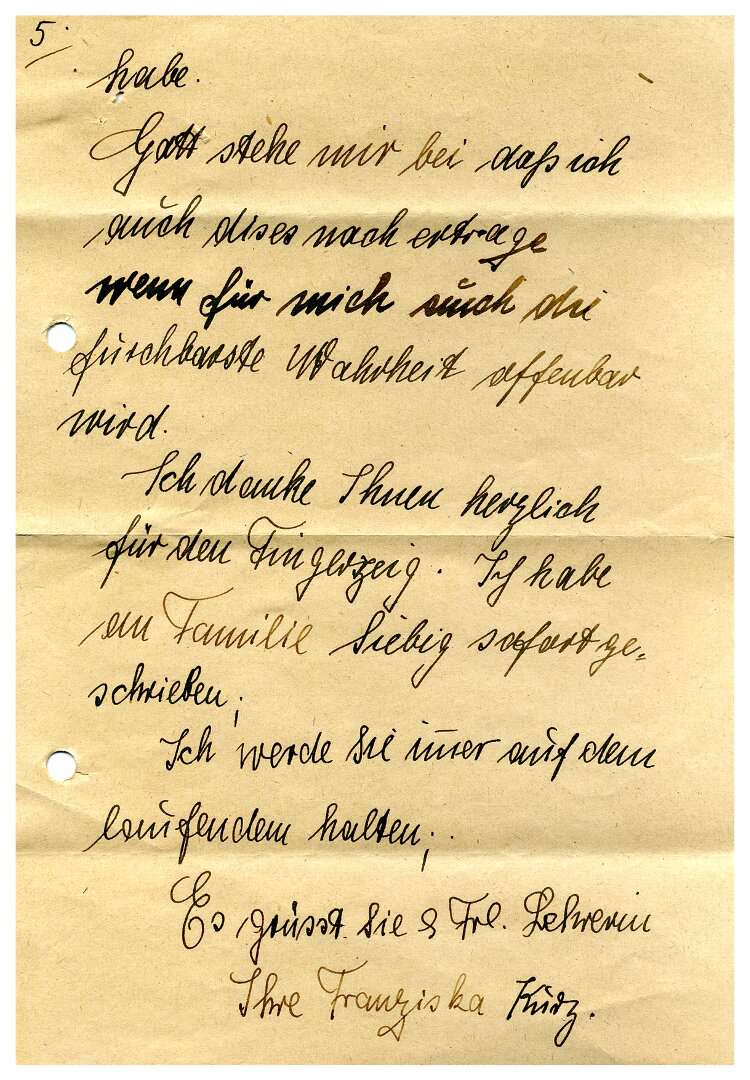Schellenberg, I.30.46
Dear Mother Superior!
I have received your distressing letter. I don’t know how I can put how I feel into words, when I hear of so much goodness, words fail me. A mother couldn’t have possibly acted any differently from how you and the teacher did. I would like to thank you again for making the parting as easy as possible for all the children in this difficult hour, when most of them were heading to their death.
2./
Please write and tell me how my children bahaved when they had to say farewell. Please, please, tell me everything. In May, shortly after your letter, the police told me verbally that my 4 children were in Auschwitz. I asked them: ‘What are you going to do with my poor children’. The answer [was] blunt: ‘Exterminate’. Then I was warned to keep quiet & not to try to make contact, otherwise they would have to send me & my youngest child from my 1st marriage to a concentration camp
3./
because we weren’t Aryan either. I had to sign 12x, for the sterilization for myself & my child Maria. After the birth of my youngest child, Ghünter Pfaus, b. 23. III.45, I was, while in childbed for 14 days, arrested and taken to the local health authority in Berchtesgaden. But since I was still breastfeeding my child & because little Ghünter was with me, I was allowed to go home. Then the war ended and that’s what saved me. But I haven’t been able to find out anything about my children, not a single trace. Reading
4./
the reports about Auschwitz, Belsen & the other concentration camps, I’m often surprised that I’ve not yet been committed to an asylum. I often ask myself why Our Father in Heaven has let all this happen. What did the poor children do to be torn away from their mother, and then later from you, where they were well looked after. But despite everything, I still hope to find my children again. Please hope & pray with me, so that I finally know for sure.
5./
May God stand by me and give me the strength to bear it all once the most horrific truth is revealed. I thank you dearly for the pointer. I wrote to the Siebig family immediately. I’ll keep you up to date. Greetings to you & the teacher, Yours, Franziska Kurz.




